What I learned from Marco Pannella
Marco Pannella was a political leader, who died at 86 years old (1930-2016).
He was the political champion of personal freedom in Italy. His methods and visions were revolutionary for my country. He managed to get huge results, with a very small party (Partito Radicale), a radio station (Radio Radicale), direct democracy, civil disobedience and streets propaganda.
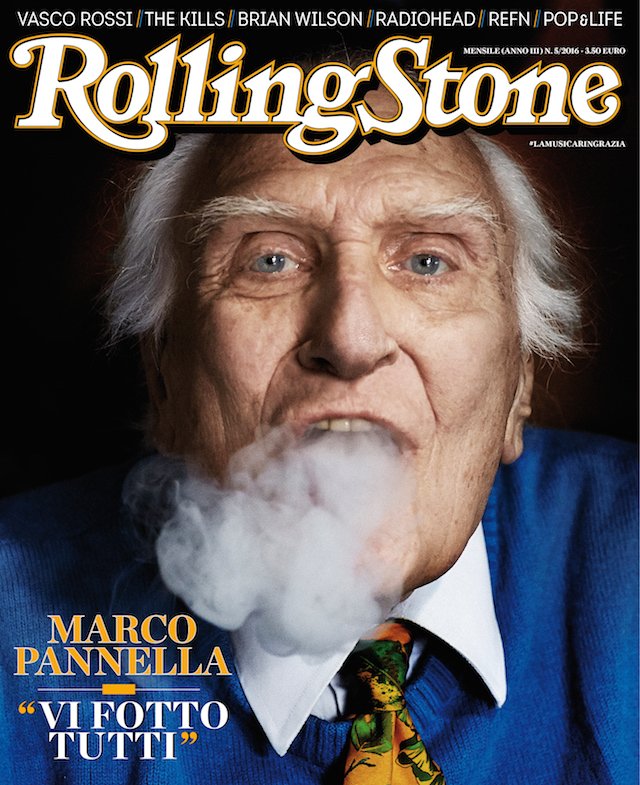
What I learned listening to Pannella
- I mezzi prefigurano i fini. End does NOT justify means, instead, means are going to set your end. Example: if you have violent methods, you cannot obtain peaceful objectives. You will obtain more violence.
- We can have alliances on specific proposals, no matter if we disagree on everything else.
Nothing bad on ideologies, but proposals are key in politics. Let's join forces on this specific issue / proposal, let's achieve our aim, and then we can go back "fighting" each other. - Non vincere, ma con-vincere. You don't have to win, you have to persuade.
Convincere means persuade, but if you split the word it means winning-with. Pannella rethoric was always hoping to change politicians and people minds, instead of simply winning a debate or election. - You can do politics without being elected in institutions. His party always had very low percentages in elections (with a couple of exceptions), but they had promoted a lot of popular legislative initiatives and more than 110 referendums since 1974.
- Free speech is absolute. If you really believe in free speech, you have to grant it to everyone, even fascists. Pannella was actually debating with post-fascist and communist leaders, very far from his culture, and his radio station is still airing conventions of every party of the country (RadioRadicale.it is a huge archive now).
- abolition of compulsory military service (1972)
- divorce (1974)
- right to vote to 18+ years-olds (1974)
- abortion (1975)
- cannabis / drugs legalization
- assisted suicide
- abolition of public funding of political parties
- stop over-populated prisons and abusing pre-trial detention as State torture
- embrace immigration as working power
- democratization of European Union
- Radical Party members are allowed to be members of any parties, be elected in right-wing or left-wing parties, and still being radicals.
- To be in Radical Party, you just have to agree to the approved proposals of that year. And pay the annual fee.
- In 1988 the Radical Party changed its name to Transnational Radical Party. The idea was that modern world issues are global, so they can't be resolved by national States alone. Membership was opened to people outside Italy.
- There was a federated structure within the party itself, with lots of thematic movements on specific issues, like freedom of scientific research, international justice, anti-prohibitionism, LGBT rights, and so on. Federalism of ideas!
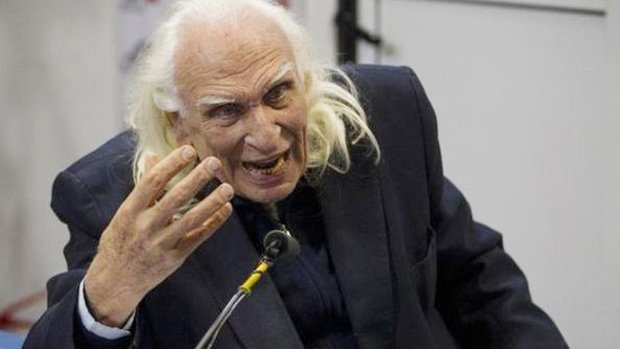
I believe these are powerful concepts, of course they're not always easy to apply.
I'm also thankful to Pannella and Radical Party because they made me start to think about freedom and politics in general, about 15 years ago. Thanks to the website/radio Radio Radicale I learned how our institutions works, with details it's difficult to find elsewhere. TV debates are superficial, they're mostly political marketing to catch votes. Instead, on Radio Radicale you can find detailed politics debates, news and analysis.
Of course I don't agree on everything Pannella said and did, but nevertheless he opened my mind with his long talks.
A very short biography
I'll just scratch the surface, I can't be exhaustive in summarizing 60+ years of history.
As with everything in politics, things are very complicated, so I'll try to simplify and be short. If you want more details, please ask me!
Marco Pannella ideas were an interesting mix of classical liberalism, libertarian socialism, libertarianism, environmentalism, neo-liberalism, anti-clericalism, civil disobedience and non-violence. He strongly believed in rule of law, democracy, secularism, federalism, and European Union, as a way to fight nationalism and make trades instead of wars.
I know there are lots of libertarian and anarchists on Steemit, so you might ask where the revolutionary culture is. Well, Pannella started his political career in a country where the biggest political actors were Christian Democracy (DC) and Italian Communist Party (PCI), both of them close to Vatican...
Radical Party was pioneer in Italy in talking about personal freedom and controversial or unpopular topics, mainly using direct democracy and civil disobedience.
Pannella helped a lot to give Italy some civil rights, such as:

He helped create the International Criminal Court (1998) and the death penalty moratorium (2006), urging italian government to act at United Nations, through hunger and thirst strike.
He talked about malnutrition in 3rd world countries (1980s), supported by 113 Nobel prizes. In that period of time, Italy raised foreign aids from 0.08% to 0.40%, and EU allocated 5 bilions ECU.
A short list of my favorites radical battles yet to win:
Justice was a big issue for him, 'cause it's really fucked up in this country - I will try to do a series of posts about justice in Italy, if I can. I think he lost a lot of his popularity with his battles for amnesty, 'cause many italians think about jail as pure punishment.
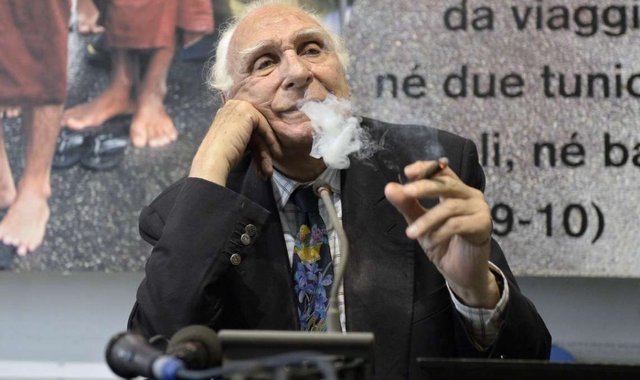
He wanted Italy and EU to be strategically friends of USA and Israel, but he wasn't blind to american mistakes - for example, he was a fierce opponent of Iraq war (2003).
He was the only european politician attending Anna Politkovskaya funeral (2006).
He liked US and GB institutions with two-party system, he wanted a presidential republic, and he proposed and won a referendum for the abolition of proportional representation (1993). It was important for him to focus elections on single politicians instead of parties (Italy never had a pure single-member constituency).
He was standing for persecuted minorities all over the world, in particular I remember his friendship with Dalai Lama.

I can't verify this, but I always felt he was prepared way more than average on history and political philosophy, and less interested in talking about detailed economics.
However, generally speaking, his party was in favor of privatizations agenda, public spending reduction and tax cuts, especially in the 90s (but also nowadays).
He promoted and won a referendum against nuclear energy (1987).
He has been called a night politician, because he was concerned about topics such as prostitution, drugs, jail conditions, planned parenthood, sexual freedom. He made Cicciolina, a popular pornstar, elected as member of parliament.
If I remember correctly, he was against quotas for women by law, but at the same time his party and movements had a lot of women in key positions.
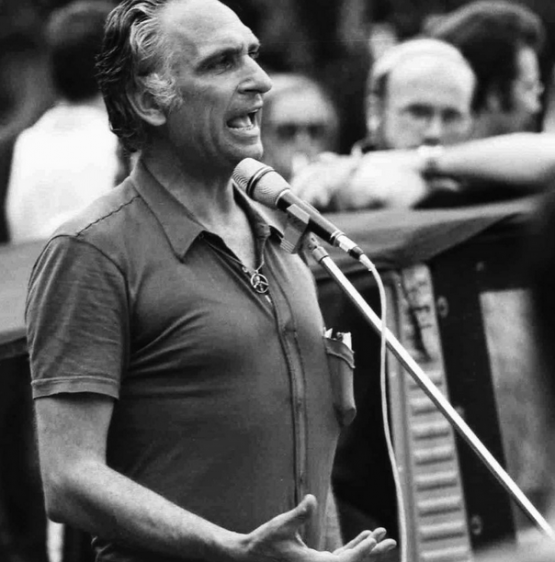
Pannella was a very controversial leader when he was alive. Strong ideas and strong words. The guy you typically love or hate.
He was feeling censored by media and other politicians, and that's true to some degree. He was attacking the political system, talking about regime media and party-cracy (power of political parties, instead of democracy).
Media and politics were often doing sabotage on his referendums, to make them fail (a big 50%+1 quorum is needed in Italy). And when he won huge binding revocatory referendums, italian parliament often ignored them (for example, we still have public funding of parties, but the 1993 referendum to stop them was won).
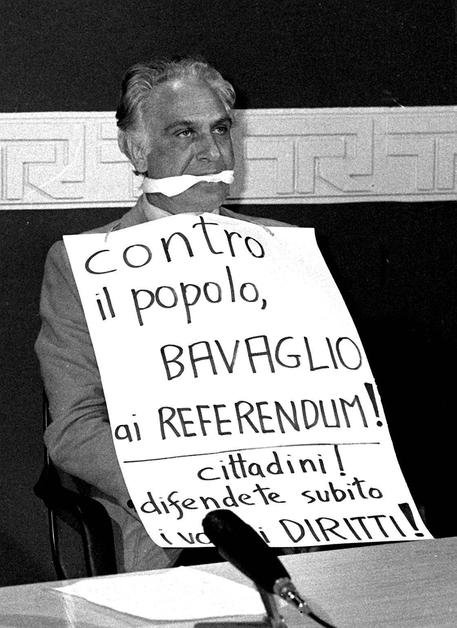
<<Media are treating me like I'm dead when I'm alive.
They will treat me like I'm alive when I'll be dead.>>
He was right.
His lay funeral was a long political meeting where all kinds of people took the microphone for 5/10 minutes: politicians, prostitutes, journalists, prisoners, immigrants.
I admire him for his analytic ability, and for having long-term views, for example on EU and Turkey.
A visionary party organization
<<A political party is not a church, where you must agree on everything>>
(Emma Bonino, the other well-known Radical Party leader)
Structure and objectives of PRNTT were probably too complicated and ambitious for such a small party, however there's no other party in Italy with this kind of libertarian rules.

Not a saint
No man is perfect, everyone has shadows and contradictions; this is especially true for a politician.
My main criticism is that he managed his party like the owner he was.
As you may have noticed, I used Pannella and Radical Party as synonymous.
The party was very small in numbers and Pannella was the unquestioned political genius and leader. So he took most of financial control of the party assets, as a trusted sponsor, in order to avoid hostile takeovers. With his death and no clear leadership after him, the party is burning in fights over control (to be continued...).
On paper, there was a libertarian statute accepting everybody, without the possibility to expel anybody (that's why the trusted sponsor), but reality was different. Several party secretaries became scapegoats to push away with insults for the small amount of members. That's why Pannella was said to eat his own (political) children.
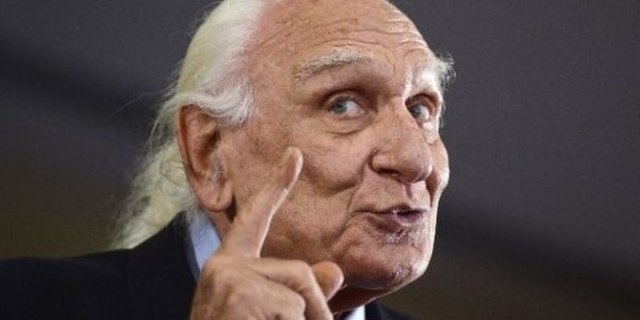
Sources: memory, Radio Radicale, a bit of Wikipedia and Google for dates
Image credits: 1, 2, 3, 4, 5, 6, 7, 8-9, 10
I hope I didn't make too many english mistakes!